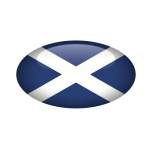
The Scottish Government have published their annual summary of prescribing statistics for mental health drugs. The report shows increases in the prescribing rates for all groups of drugs over the last 12 months.
The prescribing costs of some groups of drugs have also risen (ADHD, dementia, depression) although other groups have seen a decline (insomnia and anxiety, psychoses and related disorders).
Mental health drug information for this report comes from ‘NHS prescriptions dispensed in Scotland’.
The report is divided into 5 categories:
1. Insomnia and anxiety
- In 2011/12, 363,823 patients were dispensed a hypnotic, anxiolytic or barbiturate
- 64% of people prescribed drugs in this category were female and 36% male
- There is an increasing trend in the number of patients who received a hypnotic or anxiolytic, peaking at ages 45-49 and then steadily decreasing as patients get older
- The total cost of dispensing a hypnotic, anxiolytic or barbiturate was £7.1m, a decrease of 10.2% on the cost in 2010/11
- The CHI capture rate (i.e. the number of prescription items that were actually dispensed for individual patients) in 2011/12 for hypnotics and anxiolytics was 93.2%
2. Psychoses and related disorders
- A total of 817,937 items were dispensed for drugs used in psychoses and related disorders during 2011/12, an increase of 32,196 (4.10%) items over the previous financial year
- In 2011/12 there were 78,471 patients who were dispensed drugs used in psychoses and related disorders
- 54% of people prescribed drugs in this category were female and 46% male
- There is an increasing trend in the number of patients receiving drugs in this category, peaking at ages 45-49 and then steadily decreasing as patients get older
- There has been a slight decrease in the cost of drugs for psychoses and related disorders from £34.99 million in 2010/11 to £34.73 million in 2011/12
- Overall though, since 1993-1994, there has been an 18-fold increase in the cost of psychoses drugs in Scotland (from £1.9 million in 1993/1994, to £9.2m in 1999/2000, to £24.4m in 2005/2006, to £34.7m in 2011/12)
- The CHI capture rate in 2011/12 for psychoses and related disorders was 94.3%
3. Depression
- There were 718,330 patients in 2011/12 that were dispensed an antidepressant (of course it’s important to remember that these drugs are used to treat many conditions these days, not just depression)
- 67% of people prescribed drugs in this category were female and 33% male
- There is an increasing trend in the number of patients receiving drugs in this category, peaking at ages 45-49 and then steadily decreasing as patients get older
- The total cost of dispensing antidepressants was £31.4m, an increase of 2.6% on the cost in 2010/11 (this is attributed to the short supply of Citalopram and Sertaline which cost more during the time period)
- Overall, since 1993-1994, there has been a 2-fold increase in the cost of antidepressant drugs in Scotland (from £14.1 million in 1993/1994, to £44.5m in 1999/2000, to £54.9m in 2005/2006, to £31.3m in 2011/12) with a clear peak in costs in 2005/6.
- The CHI capture rate in 2011/12 for antidepressants was 95.9%
- The top five antidepressants in terms of dispensed items in 2011/12 were:
- Citalopram
- Amitriptyline
- Fluoxetine
- Mirtazipine
- Sertraline
4. Attention Deficit Hyperactivity Disorder (ADHD)
- ADHD Drugs are in general licensed for the ages 5–18, although usage sometimes continues into adulthood and the drugs are sometime prescribed in the elderly (to treat narcolepsy)
- In 2011/12, 7,511 patients were dispensed a drug for ADHD, of which 82% were male and 18% female
- Prescribing of Methylphenidate continues to dominate, accounting for 81.9% of ADHD drug dispensing, and with growth in the past year of 7.8%
- The cost of Methylphenidate has risen sharply in recent years with the release of new preparations of the drug. Single-daily doses are now available (compared to the 3-times/day dose), but these cost 3-4 times as much as the original
- The CHI capture rate in 2011/12 for ADHD was 91.8%
5. Dementia
- For dementia, 17,546 patients were dispensed an item in 2011/12, representing a 10.4% increase on the number of patients dispensed an item in 2010/12
- 65% of people prescribed drugs in this category were female and 35% male
- The age group with the greatest number of patients to receive a drug for dementia was 80-84
- The gross ingredient cost of dementia drugs has risen more than 4-fold since 2002 (from £3.3m in 2002/03 to £15.0m by 2011/12) and this is largely due to the cost of Donepezil (still under patent) and increased prescription rates
- The CHI capture rate in 2011/12 for dementia was 87.0%
This data will inevitably raise further concerns about the over-prescribing of drugs to certain groups within our communities (e.g. people with ADHD or dementia), which will no doubt be counterbalanced by politicians claiming that the figures reflect effective diagnosis and treatment of mental health conditions, in line with good clinical practice.
Links
Prescribing & Medicines: Medicines for Mental Health – Financial Years 2002/03 to 2011/12 (PDF). NHS Scotland: Information Services Division, 25 Sep 2012.
Mental Health Strategy for Scotland: 2012-2015 (PDF). The Scottish Government, 10 Aug 2012.
